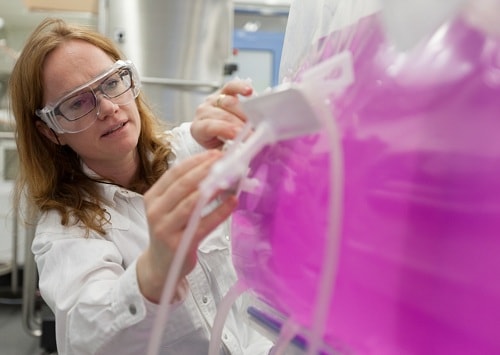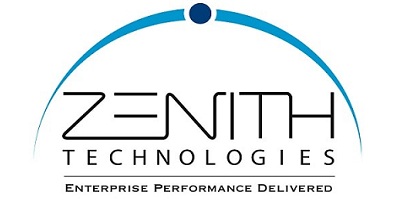Digital technology has been driving change throughout the life science industry for years, however the sector is currently standing on the precipice of revolutionary development – some organizations have already taken the jump towards a more digital future.
Data collection and visualization for decision making to improve the overall performance of themanufacturing supply chain is a huge opportunity for the life science industry, however it’s not about being new – it’s about using proven solutions andapproaches to decision making to improve quality, reliability and reducing waste.
Businesses across the life science industry have been collecting data using large historian systems for years. Many currently have so much data arising from different sources it can be hard to focus on what is important. Right now, almost every device in a GMP manufacturing facility collects data and our clients have been completing projects to physically connect all these devices and systems for many years. The drive to physically connect the systems has come from many strategic objectives, including serialization.
All this excellent work has put the industry in a great position to use the data it is currently collecting in the best possible way.Although the robotics and automotive industries may be in a better position to use Artificial Intelligence (AI) and self-learning systems to improve manufacturing in efforts linked to Industry 4.0 – the life science industry has been using data and evidence to improve its manufacturing for nearly forty years.
New tools and processes are emerging that can enable smart, decentralized production, with intelligent factories, integrated IT systems, the Internet of Things (IoT), and flexible, highly integrated manufacturing systems. In addition, future developments may mean that machine learning algorithms will be able to quickly adjust manufacturing lines and production scheduling. New developments will also pave the way for predictive maintenance and the opportunity to identify and correct issues before they happen.
Integrating with single use systems
The adoption of single-use technologies, such as single-use bioreactors and other unit operations is on the rise. Fueled by the growing pipeline of high potency and biological drugs and coinciding with the growth in personalized medicine and its inherent need for smaller batches, single-use technology will play an increasingly important role in the coming years.
Both upstream and downstream manufacturing processes benefit from single-use systems. During this manufacturing method the biopharma process system is disposed of after use as opposed to being cleaned, enabling quick set up while reducing cleaning and validation need.
Currently,the integration of manufacturing execution system (MES) solutions with start-to-finish technologies and single-use manufacturing platforms is helping the industry to deploy biopharmaceutical manufacturing with increased productivity and efficiency.The upshot is that manufacturers can significantly reduce the time-to-market for new products.
Single-use components are also an enabling technology for smaller scale production of biopharmaceuticals, including antibodies, proteins, vaccines and cell therapies, which would otherwise be much more difficult to produce. Increased productivity and efficiency are also a necessity when it comes to manufacturing smaller batches and a wider range of product. In this environment, single-use technology will naturally flourish as a simple, cost-effective solution.
Digital manufacturing
The first steps towards fully connected, self-optimizing production processes have been taken – the advent of digital manufacturing is on the horizon. Enterprise Manufacturing Intelligence (MI) involves accessing more meaningful data to give a better, more holistic view of operations and allowing for improved analytics and real-time responsive decision-making to drive continuous improvement.
Access to this data, or Big data, also allows for the creation of digital twins. A digital twin can be made up of data captured from the entireend-to-end manufacturing process of a product – this twin can then be used to find invaluable insights. Extension of the traditional ‘golden batch’, where data was very much process control-based, will be supplemented and surrounded with environmental data, raw material data, training data and any other digital data available that goes towards influencing the golden batch.
With this digital information available across multiple
sites, batches and suppliers, sophisticated analytics can provide a digital twin that best represents the golden batch and alerts controllers to any problems based on these specific data sets.
Patient centricity
Digital technology is connecting genetic information with real world data and companies are already combining drugs, advanced application devices, and apps to be more patient-centric. This push towards customized medicines solutions, driven by technological advances and pressure from patients who want to be more involved in their own care, will take the market in new directions.
The impact on the market, and more notably manufacturers, is that there will be a growing demand for smaller batches which will highlight any inflexibility in a manufacturer’s supply chain.
The propagation of product variants and smaller batch sizes will mean that launch approaches, process technologies and validation concepts will need to be overhauled.
Final thought
While the life science industry will, for the most-part, take a graduated approach to adopting new digital technology that builds upon current approaches and enhances the performance of proven solutions, those companies that are already investing will maintain a significant competitive advantage. Implementing and using digital technologies successfully will see businessesleveraging data analytics that can lead to valuable process improvements and help them to operate with greater agility, cost-efficiency and compliance. The introduction of new pharmaceutical products may take weeks, rather than months or even years – the positive impact that digital technology can have on patient lives, which is ultimately what the life science industry strives for, cannot be understated.
The adoption of cloud and edge computing to the life science industry truly offers organizations the ability to gain insights that are currently just not available with existing infrastructures and technologies. Digitalizing and connecting the data across the entire supply chain with embedded context will lead to asset performance and utilization improvements, but ultimately will lead to the adoption of advanced analytics that will improve insights gained in the science of making life saving drugs.




















